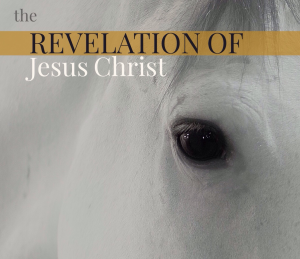The theme of holiness continues in chapter 6, this time covering those who wish to intentionally set themselves apart in service to YHWH. These folks would be distinct, of course, from the priests, whose tribe and thus life are committed to a specific service to God as well as adherence to certain physical behaviors or adornments so that folks would know when they were dealing with a priest. The occasion for these everyday Israelites to volunteer for intentionally setting themselves apart to YHWH is not outlined, although there are examples in the Old Testament of folks doing this for a short time as part of a petition to God for a specific outcome or blessing or people living this way for life (such as Samson), likely because their parents committed them to such a thing.
We should probably see this type of vow as similar to anointing folks in oil for prayer. There isn’t anything magical in here, but it’s a use of your whole being (spiritual, mental, physical) to express a request for God’s specific and focused attention on something or someone. Also, remember that it is voluntary. There isn’t anywhere else in scripture where this is prescribed in response to sin or an act of penance or anything like that. This is a follower of YHWH living a human life who has a need or desire for God’s focused attention and chooses to live in this way. The point of this chapter is to provide guidance that, if you wanted to do such a thing, this is how it should be done. Note that this vow was not restricted to men, women could take a Nazarite vow as well.
The word Nazarite is a transliteration from Hebrew and means “set apart” (we can recognize the word “holy” as a synonym). As part of being set apart, there are 3 specific things outlined to abstain from: grapes/wine, cutting hair, and touching dead bodies. Scripture isn’t always explicit about the “why” behind each of these but there are some reasonable assertions. For wine, there is a pretty consistent connection in the history of God’s people between strong drink and the neglect of His law. Recall that Leviticus 10 forbids priests to drink wine and enter the Tent of Meeting. It’s also implied that drinking was involved in the deaths of Aaron’s sons, Nadab and Abihu. The curse upon the Canaanites can ultimately be sourced from a drunk Noah passing out and being viewed by his son Ham, father of Canaan. And Lot’s drunkenness leads to him conceiving children with his daughters, producing the Ammonites and the Moabites, ultimately enemies of Israel who will hire a prophet to curse God’s people as they travel to their promised land. Broad point, it’s a risk, and not one worth taking when you’re setting yourself apart for special attention from YHWH.
On the hair, the long, unshorn locks eventually become a sacrifice. Once the time of the vow is complete, the hair is shaved off and put on the altar as a peace offering to YHWH. The long hair also becomes a mark to the community around them that they are under a vow. This is similar to wearing sackcloth, or in our day black clothes, for mourning. It lets your community around you know what you’re going through. Unlike the warning against making it obvious that you are fasting by putting on a show, there is a practicality to people knowing why you’re avoiding strong drink, not cutting your hair, or willing to participate in communal activities like the care for a dead body.
The dead body item is a matter of cleanliness, we can note similarly that a priest can’t touch one for purposes of holiness. There are no exceptions for close family, death is still death and the person under a vow may not break it, even for dealing with the death of close family. Ever anticipating people’s tendency to try and treat the implausible as plausible for the chance at skirting a rule, v.9 and forward explains what must happen if a someone happens to die next to someone who is under the Nazarite vow and accidentally touches the body. In such case, the person shaves their head, waits a week, makes some sacrifices (holiness restored) and the thing starts over. That said, we shouldn’t miss the severity of this ritual. Unlike less serious defilement, which could be cleansed through a washing, this required washing, cutting of hair, and a series of sacrifices. Whatever the nature of this commitment of being set aside for YHWH is, it is an important business, on the level of the defilement of not just a priest but a high priest.
When the time of separation was completed, meaning the vow was complete, a series of sacrifices is made and the hair is cut and offered as a sacrifice on the altar. The description stipulates that someone could offer over and above what is stipulated here in the ritual voluntarily. However, just like the original taking of the vow, once you make it it must be kept. It’s better to commit and keep it then to over-commit and fall short.
These vows were still popular at the time of Jesus and it appears that Paul takes such a vow in Acts 18. It’s also possible that John the Baptizer and James, brother of Jesus, were Nazarites. All told, it seems that there may still be a place for self-imposed dedication to YHWH in this way in our modern lives.
Following the context of the previous few chapters, the culmination of this call to and protection of holiness in the presence of YHWH among His people, as well as the role of the priests, we find a great blessing. YHWH instructs Moses to tell Aaron and his sons that the people of Israel are to blessed in the following way: “YHWH bless you and keep you, YHWH make His face to shine upon you and be gracious to you, YHWH lift up his countenance upon you and give you peace.” And so the people of Israel get a reminder of what all of these laws are here for. YHWH creates a path of blessing for His people, a way to live out the identify of being His people and thus recipients of His gifts, His attention, His blessing, His grace, and His peace. When they fall short of receiving these gifts in their fullness, He prepares a way for restoration, for atonement; a means for being brought back into His face shining upon them.
Seriously, what a blessing. And it remains that for us as well. The means of restoration are through Jesus, rescuing us from our wandering and from our defilement, and making a way that we may live now and forever in His blessing, His grace, and His peace.
Amen



